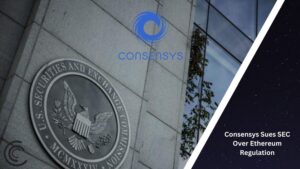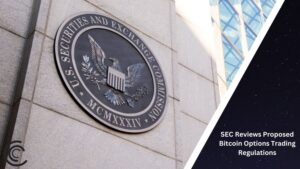Key takeaways:
- The House of Representatives document repository has been updated with a new draught bill proposing a framework for stablecoins in the United States. The first notable cryptocurrency legislation of 2023 is the stablecoin bill.
- Failure to register as a stablecoin issuer might result in fines of up to $1 million and prison sentences of up to five years.
Just before a hearing on April 19, a newly drafted bill outlining the legal framework for stablecoins in the U.S. was made available in the House of Representatives document repository. The stablecoin law is the essential piece of cryptocurrency legislation passed in 2023. The decision grants the Federal Reserve authority over non-bank issuers of stablecoins, including cryptocurrency firms Circle and Tether, which publish Tether and USD Coin, respectively.
A type of cryptocurrency known as stablecoins aims to provide price stability to investors by either being backed by specific assets or by utilizing algorithms to change their supply in response to demand. With the launch of BitUSD in 2014, stablecoins made their debut.
In accordance with the proposed legislation, which is accessible on the committee’s hearing page, insured depository institutions that want to issue stablecoins would be supervised by the relevant federal banking agency, while the Federal Reserve would be keeping an eye on non-bank companies. Failure to register can result in a $1 million fine and up to five years in prison. To do business there, issuers from outside the United States must register.
The applicant’s capacity to maintain reserves backing the stablecoins with U.S. dollars or Federal Reserve notes, Treasury bills with a maturity of 90 days or less, repurchase agreements with a maturity of 7 days or less backed by Treasury bills with a maturity of 90 days or less, as well as central bank reserve deposits, are among the criteria for approval.
Additionally, issuers must demonstrate their established governance, technical proficiency, and understanding of the benefits of employing stablecoins to promote financial inclusion and innovation.
A House Financial Services subcommittee hearing on stablecoins will take place on Wednesday. Dante Disparte of Circle Internet Financial, the company that produces USDC, Superintendent Adrienne Harris of the New York Department of Financial Services, and others will testify at the meeting.
The Securities and Exchange Commission chief, Gary Gensler, will address the entire Financial Services Committee a day later. CEO of Circle Jeremy Allaire stated on a Twitter thread that:
“It’s an extraordinary moment for the future of the dollar in the world, and the future of currency on the internet. There is clearly the need for deep, bi-partisan support for laws that ensure that digital dollars on the internet are safely issued, backed and operated.”
The proposed legislation also includes a two-year ban on creating, issuing, or originating stablecoins not backed by physical assets. Additionally, it states that the Treasury Department will investigate “endogenously collateralized stablecoins.”
According to the description given in the text, endogenously stablecoins are those whose fixed price is purely based on the value of another digital asset produced or maintained by the same creator.
The bill also gives the U.S. government the authority to establish stablecoin interoperability requirements. It also establishes the backing of Congress and the White House for a Federal Reserve study on developing a digital currency.











